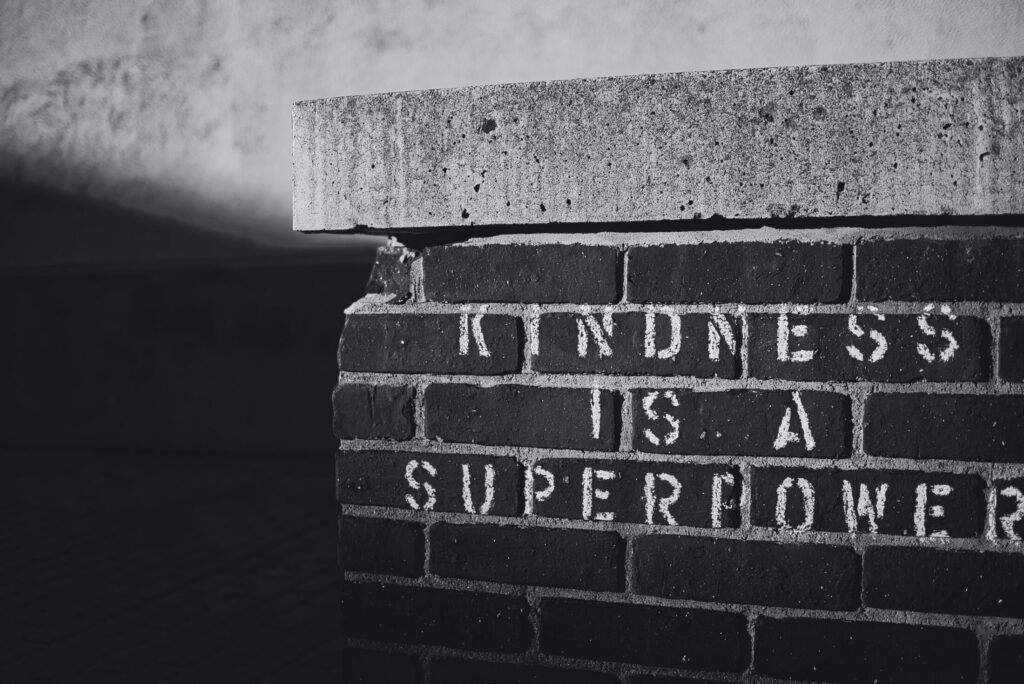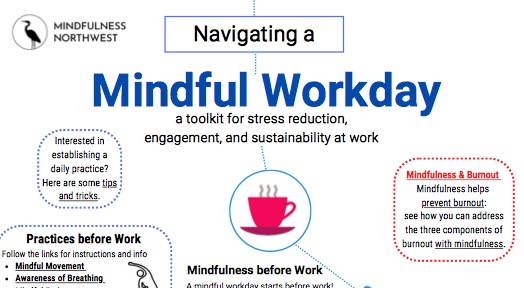
Photo by Andrew Thornebrooke
This month I’m excited to share how another huge support for us in times of stress and distress is compassion. The practices featured in our Mindful Self-Compassion program complement and support mindfulness practices to bring additional healing, understanding, and kindness to our response to an upset.
Consider the following situation (with modified details to maintain confidentiality):
I was at my computer reading email. Yes, email again. Such a source of stress!
I was at my computer reading email. Yes, email again. Such a source of stress!
The email was from a prospective client. This person had reached out a year before to ask about our sending a teacher to their offices to lead a weekly lunch time meditation. I’d given some options including a price rate. But the time wasn’t right for the client and the matter dropped.
A year later, the client reached back out and said she wanted to renew her request. I wrote, “Great. I want you to know our rates have increased, but I can still offer you the rate I quoted you a year ago.”
Somehow this message was misunderstood. (Email!) The client’s response was indignant.
“I can’t believe you raised the price on us like that. You clearly don’t have any integrity.”
Oh, my! This was the exact opposite message I intended to convey. I thought I was practicing generosity and integrity while my client felt otherwise.
“I can’t believe you raised the price on us like that. You clearly don’t have any integrity.”
Oh, my! This was the exact opposite message I intended to convey. I thought I was practicing generosity and integrity while my client felt otherwise.

Photo by Annie Spratt
I could feel my stomach clench. My brows and jaw tighten. My shoulders at my ears. I wanted to write an angry response.
It was an effort for me to keep breathing. Someone had just accused me unjustly! All of my alarms were going off. The brain’s stress response I’ve read and taught about so much was clearly in high alert: my activated amygdala sent cortisol streaming through my body to prepare my fight or flight stress response. And the executive function of my brain’s prefrontal cortex was definitely offline.
Somehow I managed to get out of my desk chair and walk to the back deck.
Just being outside helped a bit. The fresh air. The wider vistas around me. Not being in front of my computer or in my cluttered office. Away from the environment in which I’d been triggered.
And then I remembered a tool from Mindful Self-Compassion: the Self-Compassion break.
I began turning toward the three steps of this practice.

Photo by Craig Tidball
First is mindfulness. I tuned in more fully to the tension in my body, to the upset, to my angry and indignant feelings. I noticed the swirling in my mind and the desire to lash out at this horrible, unfair person. (Yes: it was a big reaction to an email!).
And I remembered that mindfulness includes awareness and acceptance. “This is how it feels right now,” I told myself. “It’s understandable. It’s okay. It’s human. I don’t have to tell myself unhelpful things like I should be more “mature” or that it’s no big deal since it was clearly a mix up on her part.” I was seriously upset. And with mindfulness, I could feel my emotions a little more clearly and accept them a little more fully.
Just acknowledging the hurt helped a bit. I could feel my body starting to unclench.
Then I moved to the second step: reflecting on common humanity. Just like me, I realized, many (many!) people were unfairly accused of something today. Just like me there are probably even quite a few who were unfairly fired by a potential client. Or unjustly accused of a crime they didn’t commit. Or worse. I breathed in and out and repeated those words: “Just like me many people were unjustly accused today.”
My entire system’s response to this contemplation of common humanity was pretty amazing to me. I felt a major release of tension in my body. I felt my breath even out and deepen. I felt my spirits lift. My shameful isolation – from assuming I’m the only one with this problem – shifted somehow.
It’s not just me? What a relief! It’s human and normal? Whew.

Photo by Dave Hoefler
And then the third step of the Self-Compassion break helped me soften up a little more: self-kindness. I put my hands over my heart in a gesture of soothing touch and said to myself, “May I be kind to myself over this. This stuff happens. It’s okay. May I be kind.” I breathed in and out and focused on kindness. “May I be kind to myself. May I be kind.”
And then I looked up again. I was still on my back deck but the world looked a little different. A bit more vivid and interesting. I felt more fully…there. I considered if I should take a walk around the block before continuing on with my work day. But checking in, I realized: no, I’m okay now. I’ll get back to work. It wouldn’t be long until lunch. I could take a break then.
The client and I were never able to reconnect and figure things out together, though I wish we could have. Some situations don’t reach resolve in the ways we might like. But I’m so grateful for the tools of mindfulness and self-compassion that help me when things boil over.
If you’d like to try to the Self-Compassion break next time you get upset, I’d be delighted to walk you through it on this video.
Good luck!
Tim

